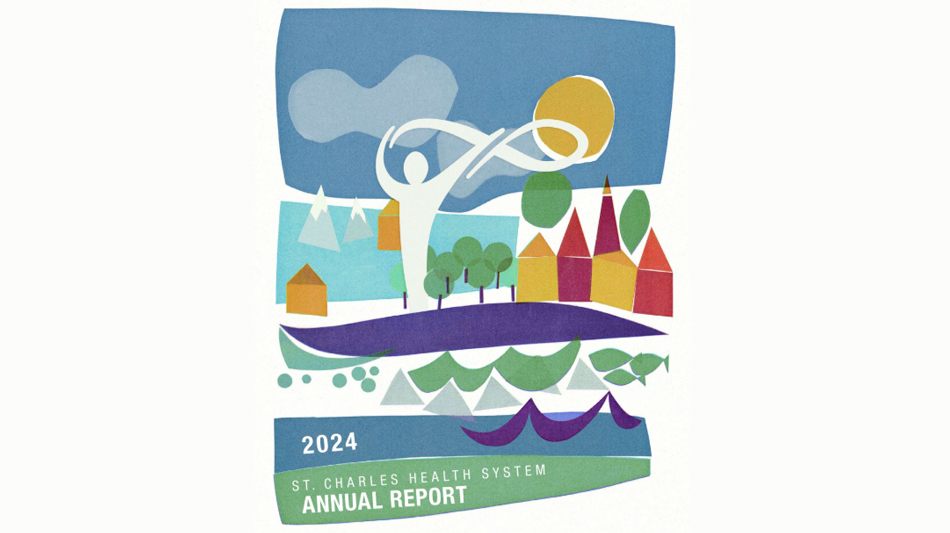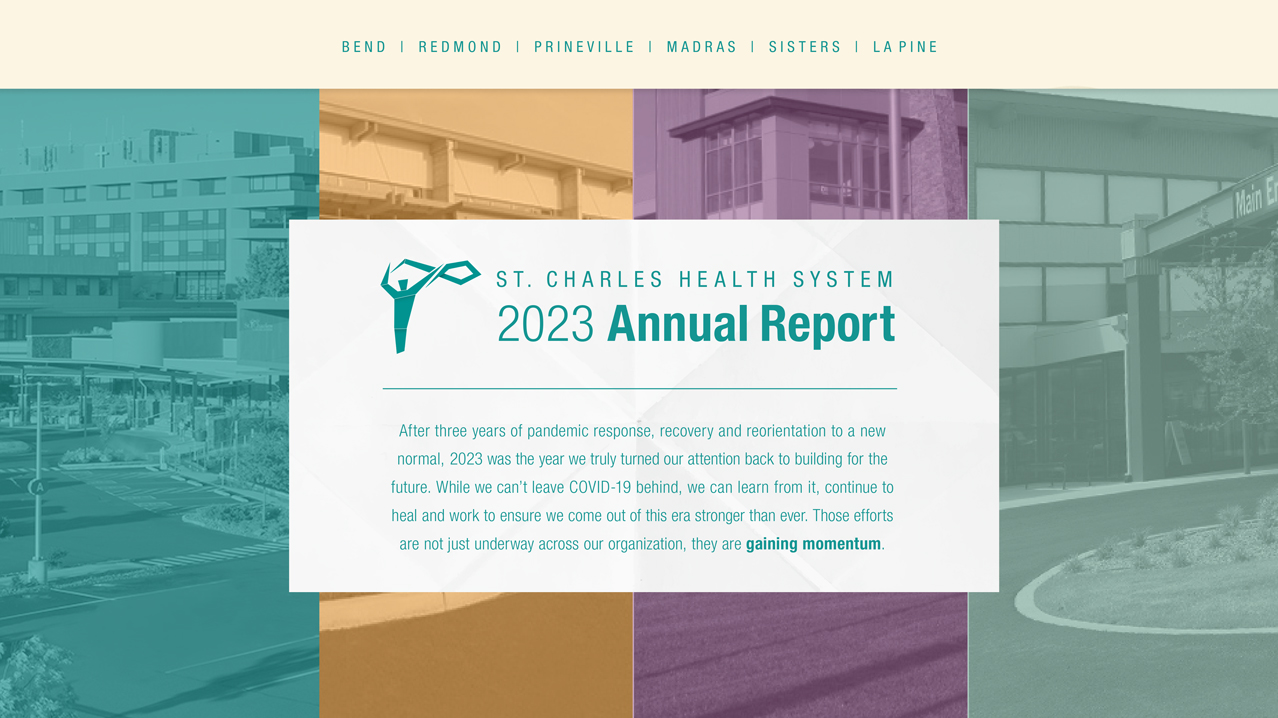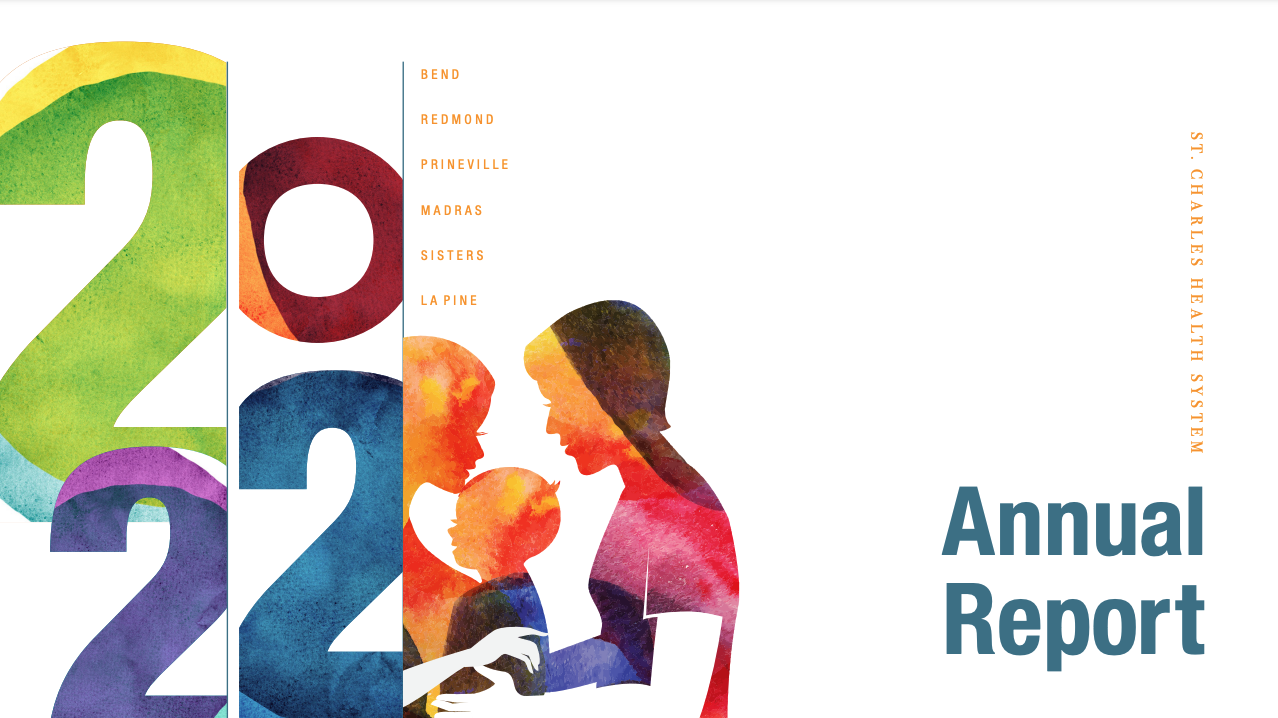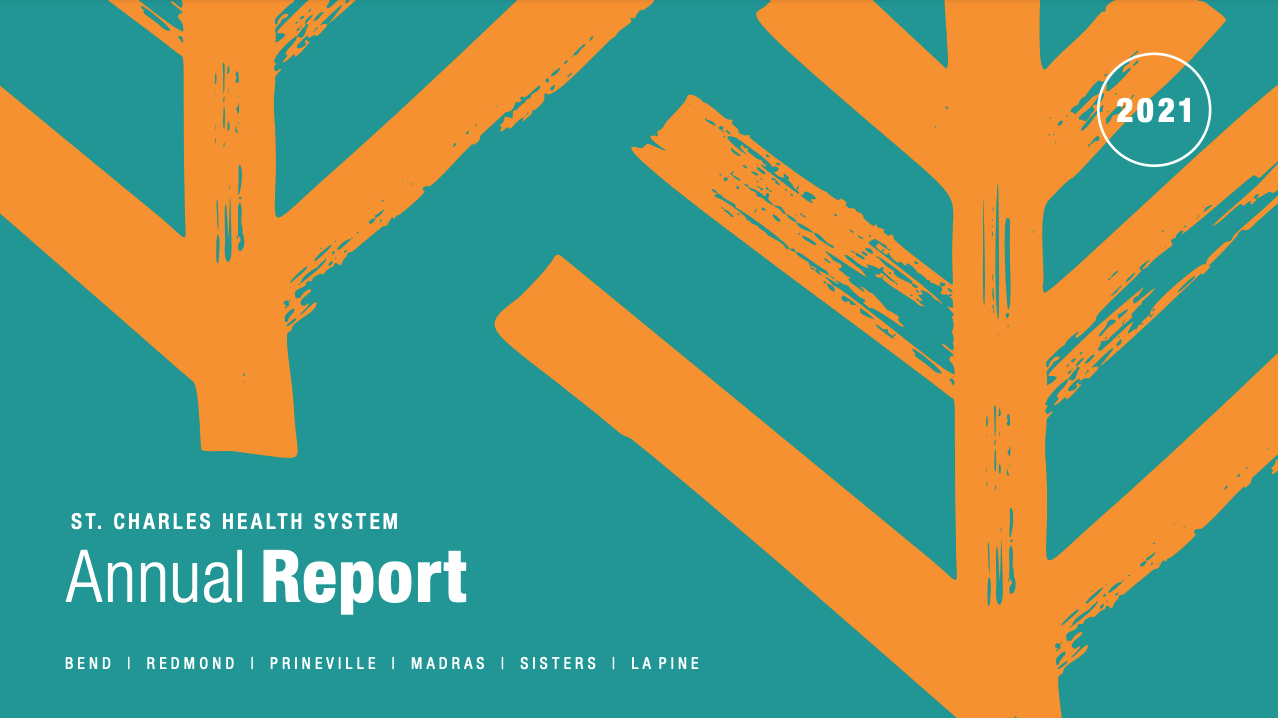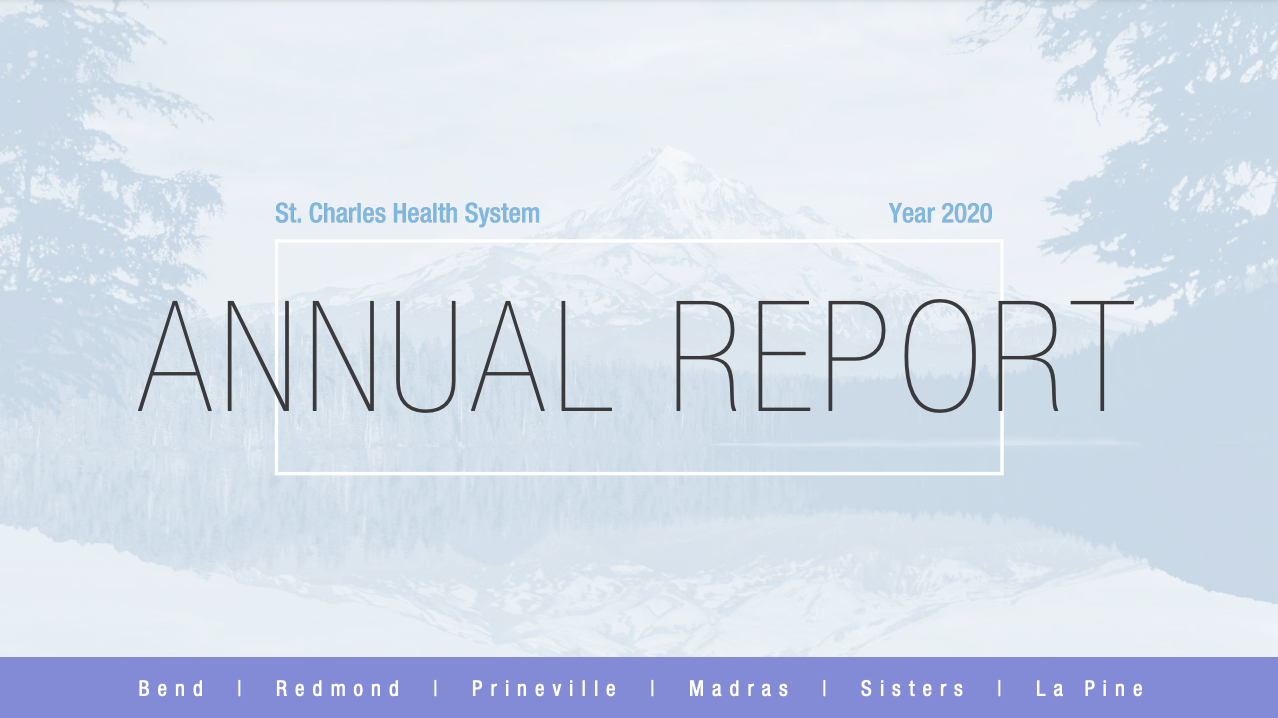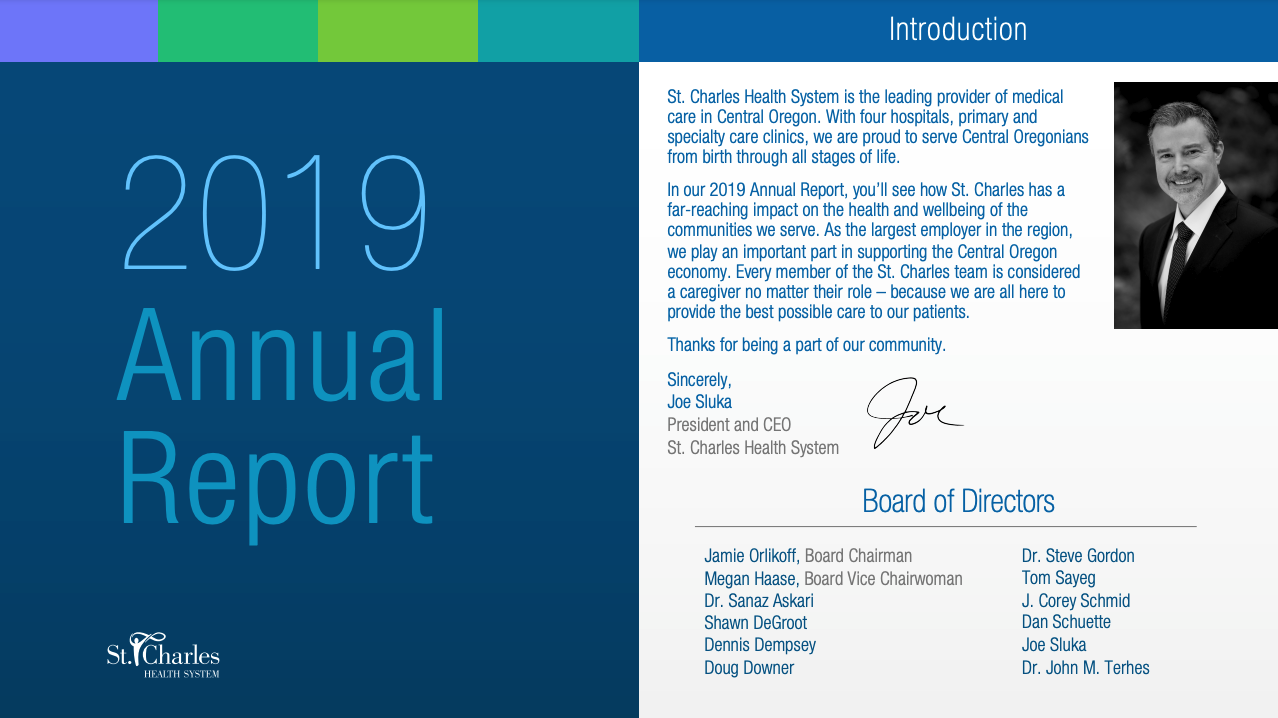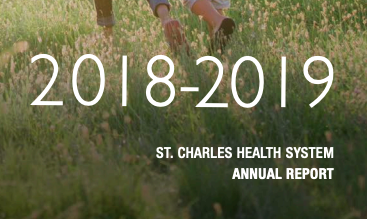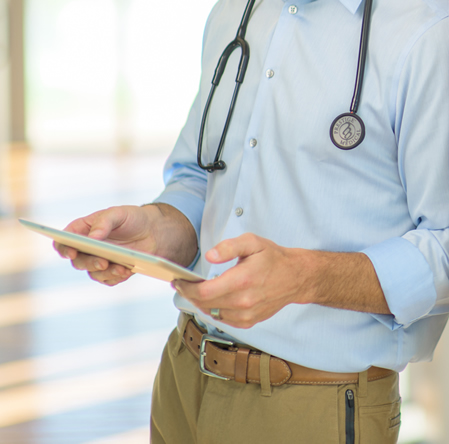St. Charles Health System is pleased to welcome two new members to its board of directors. J. Corey Schmid and Dr. John Terhes recently joined the board bringing a wealth of knowledge and experience to their positions.
“We are thrilled to welcome Corey and John to the St. Charles board and appreciate their willingness to share their time and expertise,” said Jamie Orlikoff, St. Charles board chairperson.
Schmid, a Bend resident, is a general partner at Seven Peaks Ventures and leads the organization’s digital health investment portfolio. She is also a trusted executive innovation advisor and board member to regional health care systems, industry consortiums and startups as a venture capital partner. In addition to her role on the St. Charles board, Schmid serves on the board of directors for Amplion, Inc., is a board observer for Bright.md and is a Junior Achievement volunteer and instructor.
“I am inspired as a community member raising my two boys and building my business here in Bend, to have a positive impact on the health, well-being and sustainability of our most critical service provider, St. Charles Health System,” Schmid said. “We can raise the bar for all of our Central Oregon residents, and I'm honored to be a part of our future.”
Dr. John M. Terhes, a general surgeon in Eugene, brings expertise and passion around patient safety efforts to his board position. He also serves as a committee member for the Northwest Safety and Quality Partnership through the Washington State Hospital Association and Oregon Association of Hospitals and Health Systems and is a board member for the Oregon Research and Education Foundation.
“I hope to help further the transformation of St. Charles Health System by actualizing the goals of zero patient harm, improving accessibility and reducing the total cost of care,” Terhes said.
In addition to the new members, the St. Charles Board of Directors recently elected its chairperson, vice chairperson and secretary/treasurer for 2020. The new board chairperson is Jamie Orlikoff, president of Orlikoff & Associates, Inc., a consulting firm that specializes in health care governance, leadership, strategy, quality, safety and system development. The new vice chairperson is Megan Haase, CEO of Mosaic Medical, which operates Federally Qualified Health Centers throughout Central Oregon. Tom Sayeg, an attorney with Karnopp-Petersen, will retain his role as secretary/treasurer for another one-year term. Orlikoff will succeed Dan Schuette, who served honorably for five years as chairperson, and Haase will succeed Dennis Dempsey, who served as vice chairperson.
“We are excited to welcome our new board members and we thank Jamie, Megan and Tom for their willingness to take on leadership roles within the board structure,” said Joe Sluka, president and CEO of St. Charles Health System. “I’d also like to thank Dan Schuette and Dennis Dempsey for their many years of steady and prudent board leadership, as well as directors Mack Gardner and Greg Van Pelt for their many years of service and dedication to St. Charles and our communities. Mack and Greg have decided to roll off the board and their passion and expertise will be missed.”
About St. Charles Health System
St. Charles Health System, Inc., headquartered in Bend, Ore., owns and operates St. Charles Bend, Madras, Prineville and Redmond. It also owns family care clinics in Bend, Madras, Prineville, Redmond and Sisters. St. Charles is a private, not-for-profit Oregon corporation and is the largest employer in Central Oregon with more than 4,500 caregivers. In addition, St. Charles employs over 270 providers, and has more than 800 active and visiting medical staff members who partner with the health system to provide a wide range of care and service to our communities.
###


